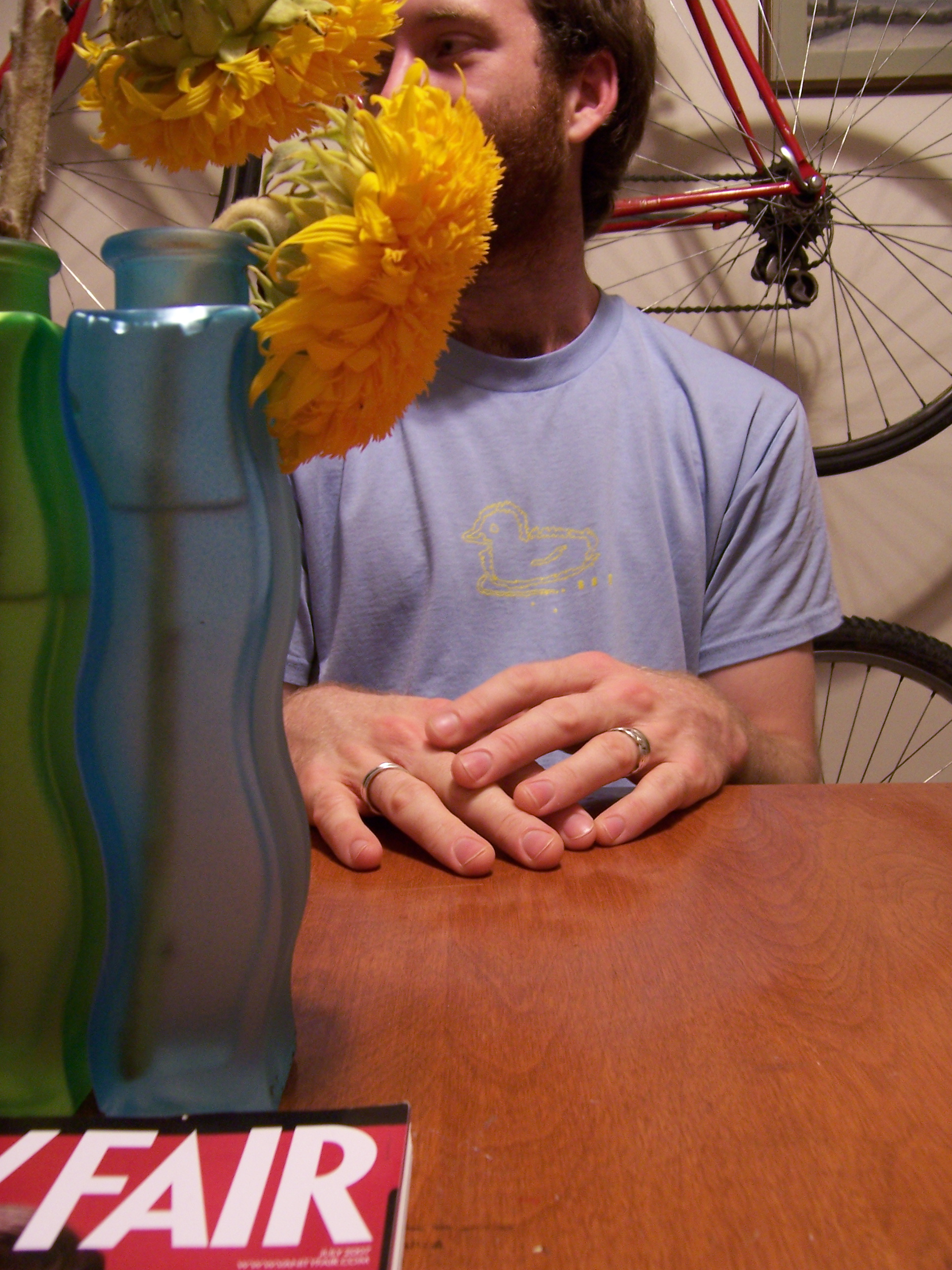Poetry being Poetry in 4.2
Brad Fruhauff
 Poetry Editor Brad Fruhauff offers a preview of the poetry for issue 4.2.
Poetry Editor Brad Fruhauff offers a preview of the poetry for issue 4.2.
And though the two became separated, they were forever linked, like the rocking chair and the wind.
- Robert Jonte, "Elegy" (forthcoming in issue 4.2)
Owen Barfield, one of the lesser-known Inklings, believed that language began in metaphor, diversified to become more precise, and would then gradually return, with a new self-consciousness, to the rich imprecision of metaphor. I can't remember if it was Dana Gioia or Billy Collins who said that we would stop writing poetry when everything had been compared to everything else, but the point remains that poetry, whatever else it is, is certainly the art of the rich imprecision of metaphor, freeing words from the fetishization of the material into the concrete play of the imagination. Through metaphor and other kinds of figuration, poetry names things that are so particular they require more than any one word can handle, and yet the names bear no more nor less necessary relation to the things than the wind to the rocking chair in Jonte's lines above.
Much of the poetry for Relief 4.2 performs this figurative naming - not only through the juxtapositions of metaphor but also through the continuities of metonymy and even narrative. The poets in this issue aren't satisfied with the distances, as though postmodern irony were the best we can hope for. They seek to inhabit gaps and silences, like Kolby Kerr imagining Cain, having just murdered his brother, suddenly "never so certain of flesh," or Sarah Gajowski-Hill, on the phone with a friend 3600 miles away when the conversation turns serious, considering what's "a good distance to contemplate hyperbole and true affection versus basic nostalgia."
One thing I appreciate about this brand of imaginative inhabiting is that it depends on a faith in the spiritual value of imagination but does not depend on a romanticization of that faith. David Holper, visiting concentration camps in Germany, reflects on the sacrificial act of one Father Kolbe, whose death didn't stop the war or redeem the evil of the camp, but was not therefore meaningless:
Having stood in the room where Father Kolbe died, I can say with some certainty that if there is one truth for the human heart to hold, it’s that even in the hell that we would make of the world, there is always choice in how we live.
And Judy Lorenzen reflects on the act of naming itself in a poem that confesses to falling for "the serpent's semantics," which obscure truth by covering it with a false name. These are poems that take seriously the responsibility of "being poetry."
What this amounts to for me is (what I hope is true for all the poems we print) a poetry that is engaged, concrete, relevant, personal, social, political, metaphysical, spiritual - and, above all else, accessible, a poetry that speaks to use in language that may not always be easy to hear but that gives us a momentary sense that the world is as rich as we long for it to be.
Brad Fruhauff is Poetry Editor for Relief. He teaches English at Loyola University Chicago and Harper College. He lives with his wife and son in Evanston, IL.